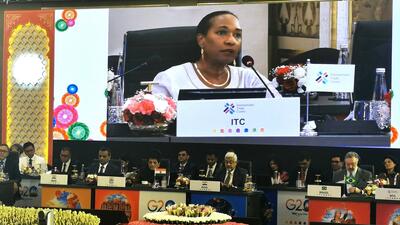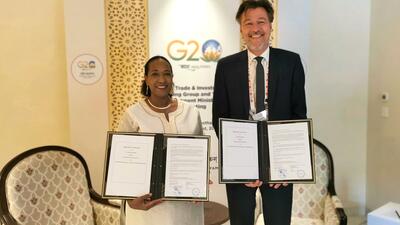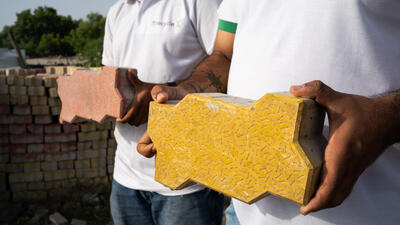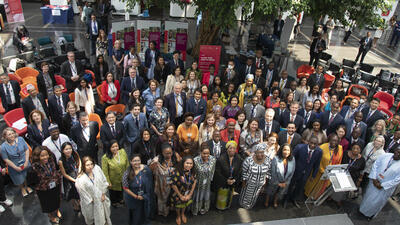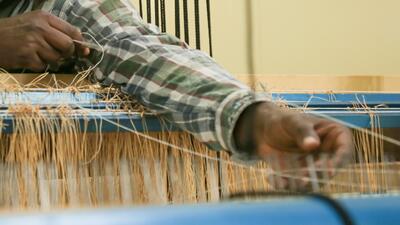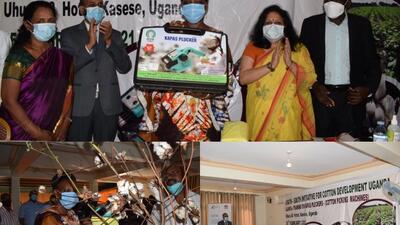
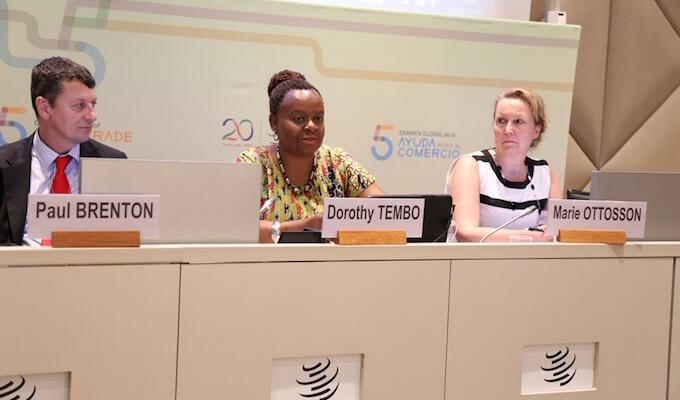
Women’s empowerment: good for business, development and men
Women’s economic empowerment featured strongly in the International Trade Centre’s participation on the third and last day (2 July) of the World Trade Organization’s Fifth Global Review of Aid for Trade.
ITC Executive Director Arancha González moderated a plenary session entitled ‘Trade and Gender: Empowering Women through Inclusive Value Chains’, which heard stories on women’s economic empowerment from Africa, India, Latin America, as well as Europe and the United States, and from the public and private sector.
Setting the bar high for the discussion, Päivi Kairamo, Finland’s Ambassador and Permanent Representative to the WTO, said that Finland would not have been where it is today in economic terms had it not included women in its workforce. ‘Empowering women is good for business, it is good for sustainable development, but above all it is good for men,’ she said.
That view chimed well with the other speakers in the session. Shinto Nugroho, head of public policy at Google Indonesia, pointed out that the lack of internet access is proving a major barrier for women entrepreneurs in her country. ‘Indonesia has an internet penetration rate of only 24%,’ she said, ‘but the higher the penetration rate, the higher the number of women-owned businesses [WOBs]’.
Meanwhile Pamela Hamamoto, Ambassador and Permanent Representative of the US to the United Nations and other international organizations in Geneva, pointed out that the majority of WOBs are in fact small and medium-sized enterprises (SMEs), accounting for one-third of SMEs. Yet only 2% of those WOBs actually export goods and services. ‘This is not just a women’s issue,’ she said, ‘men and women must work together to achieve real progress.’
Procurement policies by governments and multinationals also a have a huge role to play in including WOBs in value chains. The only man on the panel, Axel Addy, Liberia’s Minister for Commerce and Industry, said that his country obliges 25% of public procurement contract to go to SMEs, and of these 5% must go to WOBs.
Louise James, Global Programs Director at Accenture Development Partnerships, said that her company has developed a programme through which senior employees mentor WOBs to ensure that they can become part of Accenture’s supply chain. ‘To us it makes good business sense to focus on diverse suppliers and to focus on women,’ she said. ‘It is also crucial to develop “local champions”, to ensure that our employees understand the importance of purchasing from WOBs.’
Archana Bhatanagar, CEO of Haylide Chemicals said that in her country, the government has slated 25% of public-sector procurement contracts to be awarded to SMEs. But she would like some to be earmarked for WOBs. ‘When you support a woman entrepreneur, you support all the people that work for her,’ she said. ‘It is not only about including women in global value chains, it is about embracing change.’
Speaking a separate event at the Global Review, also dedicated to the economic empowerment of women, ITC Deputy Executive Director Dorothy Tembo focused on barriers facing women traders in Africa.
She outlined ITC’s support to SMEs in Africa, pointing out that gender aspects had been streamlined across projects and programmes. Still, she said, much of the framework in global trade had been focused on large companies, with little attention being paid to women entrepreneurs and SMEs. She pointed in particular to ITC’s guide on public procurement as a compass for governments to ensure that more WOBs realize their potential and can gain access to markets at home and abroad.
‘Empowering one woman means empowering a family, a community, a country and a continent,’ she said.




